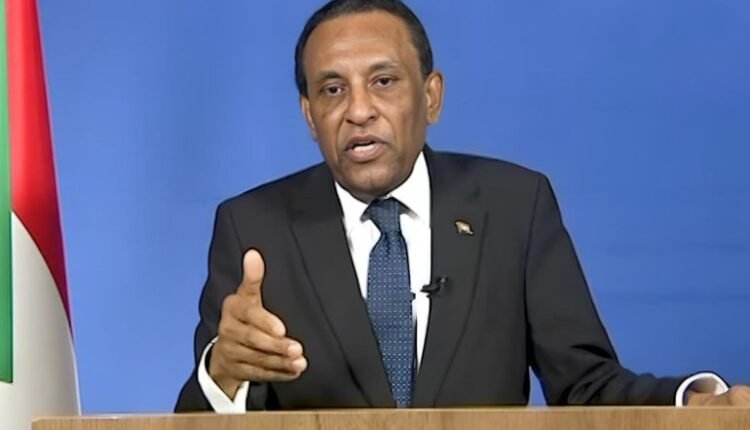Following Its Transformation from a Ministry into an Authority…Gains and Feasibility of the Authority

Sudanhorizon – Nazik Shammam
On June 20, the Sudanese Prime Minister, Kamil Idriss, announced a new cabinet in the country, reducing the number of ministries from 24 to 22 after abolishing some and merging others.
Among the ministries that were changed was the Ministry of Investment, which was transformed into the National Investment Authority, and the Ministry of Labor and Human Resources was merged with the Ministry of Social Welfare.
The Ministries of Trade and Industry and Irrigation and Agriculture were also merged, and the name of the Ministry of Foreign Affairs was changed to the “Ministry of Foreign Affairs and International Cooperation.”
Lack of Position
Yesterday, after the Ministers of Health and Animal Resources were sworn in, the cabinet within the of hope is nearing completion. The appointment of the Minister of Foreign Affairs has been delayed, and the Secretary-General of the National Investment Authority has not yet been announced. The acting undersecretary, Ahlam Mahdi Sabil, is serving as the agency’s acting Secretary-General until the Undersecretary‘s appointment. The transformation of the Ministry of Investment into the National Investment Authority opens the door to wide debate about the importance and feasibility of this step at this time, especially in light of the heavy reliance on investment in rebuilding what was destroyed by the war.
This is achieved by attracting foreign investment and attempting to create a favourable investment climate in the country to attract foreign investment in infrastructure and alternative energy, as well as encouraging investment in services and productive sectors.
An Important Step
The former Secretary-General of the National Investment Authority, Ambassador Ahmed Mahjoub Shawer, believes that transforming the Ministry of Investment into the National Investment Authority is an “important step” under the current circumstances and will yield significant gains if followed by other steps.
Shawer told Sudanhorizon that the National Investment Authority will work to resolve the issues that the ministry is unable to resolve, most notably the dispute with the state authorities.
He explained that the investment problem in the 2005 Constitution falls under the joint powers of the federal, state, and local authorities, which constantly exposes it to conflict within the three branches of government.
Additional Measures
Shawar stressed the importance of expediting the establishment of the Supreme Investment Council, which will act as a supervisory body for the National Investment Authority. It will report to the Sovereign Council, given that state authorities report to the Sovereign Council, not to the Council of Ministers.
He stated that the Supreme Investment Council consists of the Chairman of the Sovereign Council, ministers of the economic sector, representatives of businessmen, and the Secretary-General, who will also be the Chairman of the National Investment Authority.
He noted that the Supreme Investment Council meets three times a year to approve plans developed by the National Investment Authority and resolve all disputes and obstacles between the three joint authorities: federal, state, and local. He noted that the National Investment Authority is an executive body, while the Supreme Investment Council is a supervisory body.
Shawar emphasized that the Authority will be more flexible than the Ministry and will develop comprehensive investment plans to keep pace with this phase.
Investment Climate
Shawar called on the “Government of Hope” to pay attention to the investment climate, particularly in the political, economic, credit, social, and legal aspects. He pointed out that political stability would attract foreign investment, noting that investment does not come to economically unstable countries.
He said, “It is of paramount importance to have economic stability in a stable economic climate characterized by a stable currency, so that investors can avoid losses and transfer their profits abroad with ease and convenience, while also ensuring economic guarantees.”
In the social context, he emphasized the importance of local people understanding investment and its benefits, and avoiding alienating investors from their land, revealing that local communities often clash with investors regarding land, which makes the investment environment unattractive.
Shawar emphasized the need to focus on global competitiveness, to which the Supreme Council for Investment would contribute significantly. In the legal context, he called for the land law and the free zones law to be subordinated to the investment law, and for economic zones and free zones to be established to facilitate investment marketing, similar to neighbouring countries (Egypt and Ethiopia).
An Attractive Investment Environment
Zaher Al-Siddiq, Chairman of the Sudanese Businessmen and Women’s Club, agreed with Shawer on the feasibility of the move, saying it would enhance investment by providing an attractive and stable investment environment.
Al-Siddiq told Sudanhorizon, “The Authority can facilitate investment procedures and reduce bureaucratic complications, which will encourage investors to invest in Sudan. It will also significantly contribute to enhancing transparency in investment processes and reducing corruption, thus increasing investor confidence.”
Al-Siddiq called for providing support to investors through guidance and advice from the Authority, which would enhance coordination between the various relevant authorities and facilitate obtaining the required approvals and licenses.
Authority of the Authority
A source within the National Investment Authority stressed the need for the Authority to report directly to the Sovereign Council rather than the Council of Ministers.
He told Sudanhorizon that the Authority’s direct reporting to the Sovereign Council would expedite procedures and resolve all problems that hinder the investment process.
Shortlink: https://sudanhorizon.com/?p=7201

